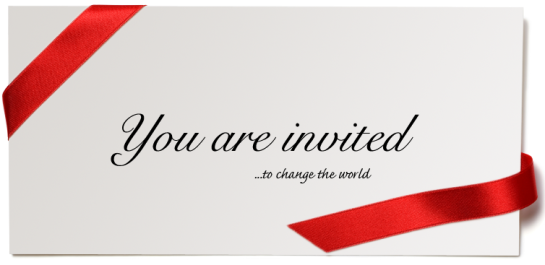An Invitation To Contribute And Share

I would like to invite you all to join with me in creating a new global intervention and treatment specialty. I’m presently naming this specialty “Organisational Psychotherapy” – although I see this as a working title, and like most else in prospect, open for discussion.
The Pitch
Organisations of every kind are struggling to cope with the many challenges thrust upon them – by rapid technological and social change, changing markets, and changing stakeholder demands. Organisations which better engage their staff, suppliers and others in meeting these challenges will do better than those which do not.
Crucial to creating better engagement are the assumptions, ideas and expectations by which these organisations operate. How might organisations better adjust their prevailing assumptions, ideas and expectations – their collective mindset – to create conditions in which e.g. innovation can thrive and folks can better contribute – even unto the utmost of their abilities, enthusiasms and potentials?
Few organisations are well-served, in themselves, in regard to making these kinds of adjustment to their collective assumptions, ideas and expectations. Unless and until they grow their internal capabilities, external partners can serve to provide the necessary skills and expertise.
The Invitation
Are your needs for effective workplaces going unmet? Are you frustrated and dispirited by the kinds of workplaces we so often see – and suffer – today? Are you feeling concerned, outraged, even, by the things people have to tolerate at work?Do you want to contribute in a meaningful and positive way, with the support and encouragement of a community of other like-minded souls, towards doing something about it?
Can we together get something inspiring and worthwhile off the ground? I have some ideas, knowledge and experiences to bring to the party, and I’m sure many of you out there do too. Would you be willing to play an active role in a community dedicated to learning and sharing and to making this happen?
Community Based
I’ve see too many transaction-oriented initiatives fail to want to make “finding work” the foundation of this endeavour. On the contrary, in the early days I predict there will be lots in the way of work to be done, and little in the way of (monetary) recompense. If you’re looking for another revenue channel to backfill your spare capacity, this is very likely not for you. Maybe one day we can look to become self-funding – God knows there’s enough value in the proposition – but I’d suggest that choosing to regard this as a calling or vocation is much more in keeping with our implicit ethos of helping people.
Note: The word “community”, for me, means things like self-organisation, equality, diversity, joy, shared purpose, fellowship and the paramountcy of social connections. Forging and maintaining meaningful social connections can be hard in an online world without e. g frequent face to face meetings. Yet without the social dimension, I foresee an early bath. Maybe we can cross that hurdle when and if we get to it?
Aside: The notion of Communities of Practice seems widely understood. I propose our community might better serve our needs – individually and collectively – as a Community of Principle. Just which principle(s) we choose to adopt I invite you to consider, and share.
Ethos
I have learned over the years that proposing solutions to people – with or without understanding their needs – offers little in the way of benefit. Better by far to hold a space and invite them to explore their own needs and (maybe, in time) find their own solutions. In this vein, I see our new specialty not as a solution to anything, but as a kind of social service. I accept this may not be popular until understood.
Open To All
For those of you that decide you’d like to contribute, learn and share in bringing a gloriously bright new specialism into the world, please join us. I’m willing to handle the limited admin of keeping track of fellows (non gender-specific term) – at least until it needs more time than I have available. Maybe some others might like to share in that.
I propose that the only criterion for joining our community is that you subscribe to the idea, and are in principle willing to put some non-negligible effort into making it happen.
“The best way to predict the future is to invent it.”
~ Alan Kay
To get started, for those of you wanting to know more, to share ideas, and to put your hat in the ring, simply post a comment, below. And please, please tell your friends.
Stakeholders
I presently envisage three kinds of participants in this endeavour: Fellows, Sponsors, and Clients. More may come later.
Community Members
Community members, also known as fellows, are you and me. We contribute ideas and efforts into the community, with the aim of establishing our new specialty as a viable and beneficial option for clients, and an attractive proposition for sponsors.
Sponsors
Sponsors, whether individuals or organisations, may wish to contribute to our aims, in the manner of a charitable trust or similar. I anticipate we have some work to do to understand such sponsors’ needs – and attend to them.
Clients
Clients are those organisations, or more exactly people in organisations, that wish to benefit from our capabilities to help them better get their own needs – collective and individual – met. With a nod to Lean Startup, I propose there is NO MANIFEST DEMAND for our new specialty at this time. I personally have no doubt as to the latent need for our new specialty, so anticipate much work ahead in seeing that demand become manifest.
Don’t Worry
No matter whether you’re feeling intrigued, puzzled, casually interested or enthusiastic, don’t worry about making a commitment. I hope our community can thrive on the ideas of ‘do nothing that is not play’, and non-violence. I for one will not be obliging fellows to do anything beyond the things we freely choose to do.
And don’t worry about choosing to get involved and wanting to start doing things right off the bat. I can coordinate, and maybe act as a tie-breaker on occasion, but I propose we take advantage of the Advice Process, and adopt a motto, from the wonderful Grace Hopper, that i learned during my time at Sun Microsystems:
“it’s easier to ask forgiveness than it is to get permission.”
~ Grace Hopper
I look forward to us all creating, sharing, learning and playing together – and making an amazing difference to the world of work. How about you?
– Bob
Next Steps
My next post will summarise your feedback and set out some common themes and next steps to get this show on the road.
Afterword
Following on from my previous post “I Have Nothing Left To Say”, I am resolved to abjure saying anything more here on this blog – and in life – in favour of actually doing something. And that something is the bringing of a new thing into the world – the specialty of Organisational Psychotherapy. Look to this mission to be the common theme of future posts.
Further Reading
The Advantage ~ Patrick Lencioni
Joy, Inc. ~ Richard Sheridan
Reinventing Organizations ~ Frederic Laloux






